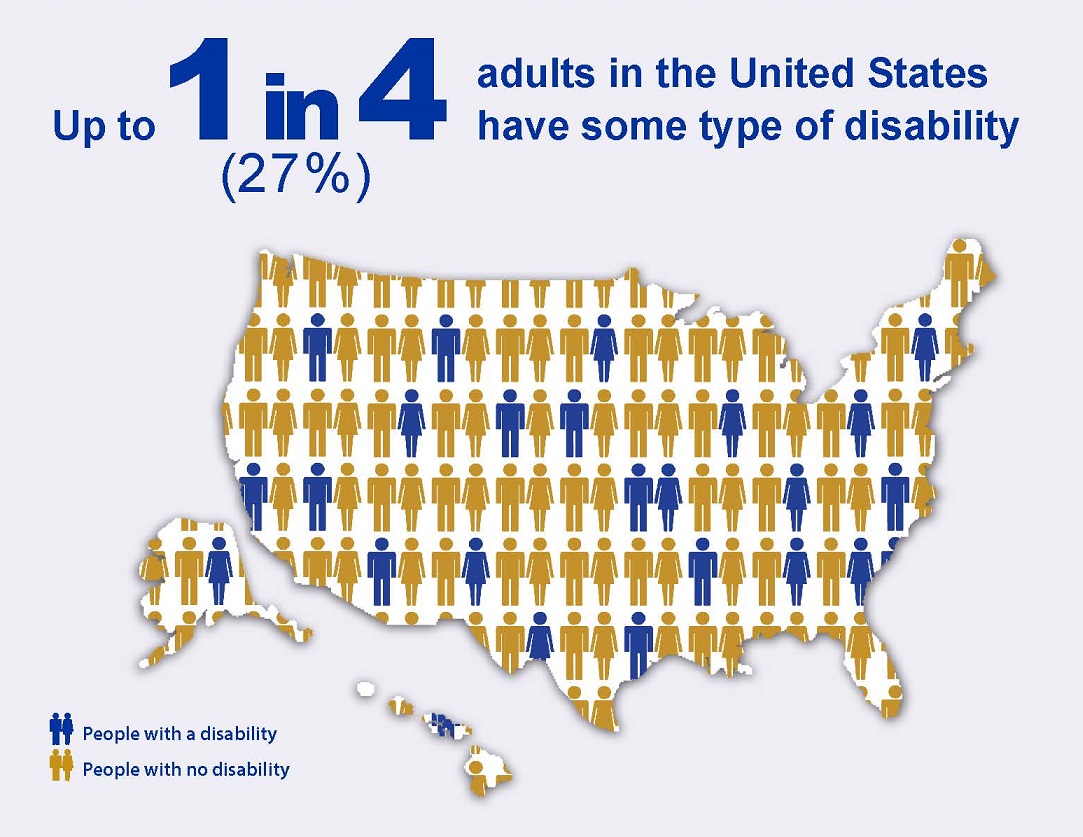Every July 26 in the United States, we recognize National Disability Independence Day. This annual observance commemorates the momentous signing of the Americans with Disabilities Act (ADA) into law in 1990.
The Americans With Disabilities Act
Prior to the 1960s, disabled Americans were broadly viewed as incapable of participating in civic life. Socially, the disabled community was surrounded by the painful stigma that its members were defective in some capacity and incapable of contributing to the workplace or public life. The broader civil rights struggles of the 1960s inspired the disability community and its loved ones and advocates to reject this stigma and to agitate for full access to opportunities in employment, education, and public life.
Over time, and with persistent visible advocacy, perceptions began to shift. A significant shift in public policy occurred with the passage of the Rehabilitation Act of 1973, which prohibited recipients of federal funds from discriminating against people with disabilities.
The ADA, first introduced in 1988, expanded the rights of the disability community by crafting protections and accommodations into a single civil rights law. This landmark legislation prohibits discrimination against individuals with disabilities in all areas of public life and assures their access to economic and civic opportunities, including access to all levels of government, public establishments, transportation, and communication. The ADA also requires covered employers to provide reasonable accommodations to employees with disabilities.
The passage of the ADA involved an unprecedented bipartisan effort to acknowledge the centuries of discrimination suffered by the disability community. It impacts not only the 61 million American adults currently living with the disability, but their employers, their families, their friends and their loved ones. It also impacts typically-abled Americans who benefit from these public accommodations. From navigating a stroller down a curb ramp or up a door ramp to utilizing an elevator at work, all Americans benefit daily as a result of the Americans with Disabilities Act.
ADA Passage and Subsequent Challenges
Congress passed the bill in 1990 with strong majorities in both U.S. House of Representatives (327-28) and in the U.S. Senate (91-6). On July 26, President George H.W. Bush signed it into law in a moving ceremony from the White House South Lawn.
“Three weeks ago, we celebrated our nation’s Independence Day, and today we’re here to rejoice in and celebrate another Independence Day: one that is long overdue. And with today’s signing of the landmark Americans with Disabilities Act, every man, woman and child with a disability can now pass through once-closed doors into a bright, new era of equality, independence, and freedom.”
Business challenges to the new law followed, taking cases all the way to the U.S. Supreme Court. The U.S. Supreme court sided with businesses against the new law in several instances (see Sutton v. United Airlines and Chevron USA, Inc. v. Echazabal), severely limited the definition of “disability” and diminishing its protective reach.
In 2008, Congress shored up the ADA with the ADA Amendments Act of 2008 (ADAAA). This amendment clarified and expanded the definition of “disability” which had been narrowed by the U.S. Supreme Court, and qualified more individuals for protection under the ADA. Additional regulations issued in 2017 further expanded protections to include access to current-generation electronic and digital assets.
Benefits of the ADA
The ADA has had a tremendous impact on the disability community. Some of those life-altering changes include:
- Structural enhancements, such as elevators, ramps, U-shaped door handles, and lever-operated and door-push mechanisms.
- Sign language interpretation.
- Large-print books and oral exams.
- Access to entertainment and educational performances and venues.
The ADA is divided into five major sections which cover jobs, state and local government services, public accommodations and services, telecommunications and transportation. It also covers miscellaneous provisions, such as prohibition against retaliation. See this article for a more detailed breakdown of the benefits of the ADA.
Moving Forward
While the ADA has helped the disability community, its loved ones and its advocates make tremendous strides, disabled Americans are still underrepresented in leadership and in employment, as well as digital, print and video media. Individuals with disabilities actively pursuing work experience an unemployment rate twice that of workers without disabilities.
Barriers to healthcare access impact the health of disabled Americans. One in four adults with disabilities (18-44y) do not have a usual healthcare provider, and have an unmet healthcare need in the past year because of cost. One in five adults with disabilities (45-64y) did not have a routine check up in the past year. Adults with disabilities are 41% more likely to be obese, more than twice as likely to smoke or have diabetes, and are nearly three times as likely to have heart disease.
In the workplace, we are seeing movement in a positive direction. Companies are becoming more inclusive in their hiring practices. In the digital space, strides are being made toward improved online accessibility, functionality and inclusion for the disability community:
- Web Content Accessibility Guidelines (WCAG), introduced in 1999 and continuously updated, improve the online experience for website visitors with disabilities.
- In 2020, accessibility began impacting Google search rankings.
- The ADA National Network, along with other groups, is promoting online resources for skills development of disabled individuals.
- Companies are demonstrating more inclusivity of individuals with disabilities in their marketing collateral.
We have made terrific strides towards accessibility and inclusion, yet we still have a long way to go. Each National Disability Independence Day, we celebrate how far we have come. We also evaluate our opportunities for growth, accessibility, opportunity and inclusion for all Americans, and we commit to fighting for a better future.
Sources:
























